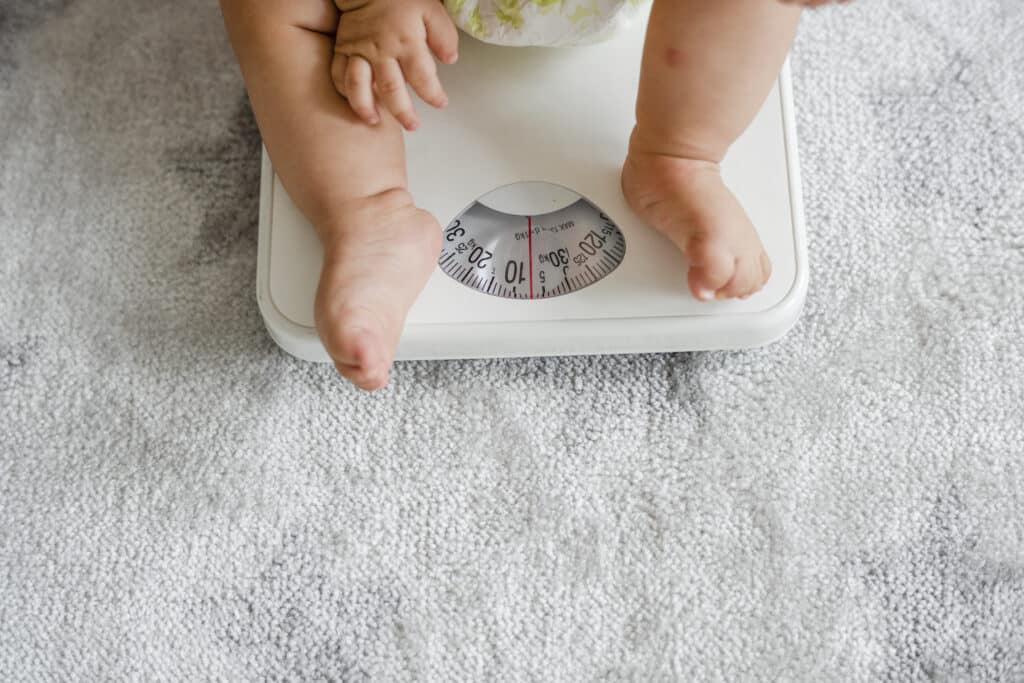Childhood Obesity । Types of Food, Actions, and Awareness. We are all more or less conscious about taking care of the little members of the house. There is no lack of effort to ensure their health. Nowadays, childhood obesity is a well-known problem, which is causing concern among parents. Children suffering from obesity need some changes in their eating habits and lifestyle. Today’s feature includes detailed information on what can be done to control and prevent childhood obesity.
How to Understand if Your Child is Overweight?
Ideal weight refers to the weight that is proportionate to height. Every age group has an ideal weight; the same goes for children. First, measure your child’s weight. If your child’s weight is 20% more than the ideal weight, then it means your child is suffering from excess weight or obesity. In this case, do not try to do something on your own. Remember, it is essential to seek expert advice to reduce children’s excess weight. Therefore, consult a pediatric nutritionist or specialist at the beginning to determine a proper nutritional plan.
What Should the Diet Be for Children with Obesity?
When children are found to be obese, many parents think that their children need to follow a diet chart. This needs to be clarified. A child’s food list should never be restricted to specific items. If given a weight loss diet chart, their physical growth and mental health development will not be proper. Let’s find out what the daily eating habits of children suffering from obesity might look like.
Find Out How Many Calories Are Needed Daily
Many think, “Since my child is overweight, I’ll drastically reduce their food intake to help them lose weight.” Avoid making this mistake because it can lead to your child becoming unhealthy. Instead, consult with a specialist to determine how many calories your child needs daily. For overweight children, it’s important to provide them with nutritious food that matches their required calorie intake. This means prioritizing nutrient-dense foods over high-calorie ones in their diet.
Maintain Essential Nutrients in the Food List
Protein is an essential food component for everyone, regardless of age. For children, sources of protein such as lean fish, meat, lentils, and chickpeas can be provided. It’s important for children’s food lists to prioritize foods enriched with vitamins and minerals. Particularly, vitamin C aids in fat burning and can be significantly beneficial. In this regard, green leafy vegetables and fruits play a helpful role. Additionally, dairy products can be included in children’s diets, preferably low-fat or fat-free milk. Alongside this, children must drink plenty of water.
Read More: Foods to Supporting Healthy Weight Gain in Children
Exclude Some Foods
Reduce Consumption of Any Sugary Foods such as chocolate, chips, ice cream, soft drinks, etc. Also gradually reduce intake of high-calorie foods such as Chinese food, chow mein, pizza, burgers, pasta, etc. These foods often contain excessive sauces, mayonnaise, and added salts that not only contribute to weight gain in children but also hinder their cognitive development. Additionally, it’s beneficial to limit foods high in salt or sugar for overall health improvement.
Make Some Habit Changes
One of the main reasons behind childhood obesity is certain daily habits. For instance, habits like feeding children while they watch TV or hold a mobile phone should be stopped. Children should not be allowed to sit with laptops, TVs, or computers for more than 30 minutes to an hour a day. It’s important for children to stay active and engaged so that they don’t get bored sitting down. Therefore, family members should try to spend as much time as possible with children.
Encourage Children to Play Sports
Children suffering from obesity should be encouraged to engage in outdoor play for at least one hour every day. Not only should they play sports, but they should also participate in activities like walking, running, dancing, jumping, cycling, and playing tag. These exercises will help keep them physically active and prevent further weight gain.
I hope I have been able to resolve all your doubts regarding childhood obesity. Managing the diet of overweight children or rushing for treatment is not advisable. It requires some time. Encouraging children to adopt healthy eating habits and engage in physical activities gradually will help them lead a normal life. Remember, family support and proper nutritional advice are crucial for children to lead a healthy life.














